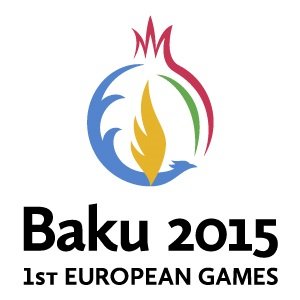NEWS
-
21.12.2020
Baku Jazz Festival in 2020 will be held virtually amid the coronavirus pandemic. The concert programs will be presented online on December 25-27.
The jazz fans invited music lovers to enjoy a three-day television show with participation of the world-famous musicians, including Dutch saxophonist Candy Dahlfer, Küspert & Colleagues (Germany), the Gaspar Karoly trio (Hungary) and others.
This year, the Baku Jazz Festival celebrates its 15th anniversary. The music event was scheduled for October but was canceled amid the 2020 Nagorno-Karabakh war.
For almost 15 years, Baku Jazz Festival has taken a major place in the country's musical life, annually pleasing sophisticated listeners and jazz music lovers with a breath of creative freedom.
Baku International Jazz Festival is an annual jazz event organized by famous saxophonist Rain Sultanov to showcase Azerbaijan's long-running attachment to jazz.
The first ever Baku Jazz Festival was held in 2005 since when it has grown to be widely recognized as one of the country's leading festivals.
The 14th Baku Jazz Festival was successfully held in the City of Winds. A ten-day feast of music featured numerous musical events from spectacular concerts to film screenings as well as workshops and master classes by world-famous musicians.
Baku Jazz Festival and related advertisements are broadcasted in Euronews TV channel. In 2006, it was included in the list of the top biggest jazz festivals worldwide.
Since 2017, the festival has joined the Europe Jazz Network. Baku Jazz Festival is also a member of UNESCO International Jazz Day Celebration.
-
18.12.2020
The Azerbaijan State Translation Centre has announced the release of an Azerbaijani-German phrase book designed for businessmen, tourists, as well as the general public wishing to learn German.
The phrase book offers a quick and easy access to a large number of topics, including “Basic phrases”, “Arrivals and departures”, “Travelling”, “Around the town”, “Hotels and accommodation”, “Food and Drinks”, “Contacts”, “Medical Emergencies”, “Shopping”, “At the cinema”, “Leisure and entertainment” and “Commonly used phrases”.
The book is authored by Vusal Abbaszade, a German language specialist at the Azerbaijan State Translation Centre. The editors of the book are PhD, Associate Professor Vilayat Hajiyev, an expert in Human Sciences Stephanie Matzer (Austria), a master of science candidate in language and communication Lisa Brandt (Germany) and a philology specialist Shafiga Guliyeva.
-
Azerbaijani sculptor has paid tribute to the brave national soldier who died for the liberation of Azerbaijan's territories.
Young sculptor Zhalya Aliyeva made a bust of martyr Khudayar Yusifzade, who left an indelible mark in the hearts of the people with his beautiful voice.
Serviceman of the Azerbaijani Armed Forces was martyred on October 22, during battles for the liberation of Zangilan's Agband settlement.
The 22-year-old martyr amazed everyone with his magnificent performance of the song "Vatan" (Motherland) during the Second Nagorno-Karabakh war. The video showing the Azerbaijani serviceman singing the song emerged on social networks.
Khudayar was born in Barda and has three brothers and one sister. He went to the army after graduating from high school.
After his military service, Khudayar applied to the Azerbaijan State Border Service. He then started serving as an ensign in Astara.
Khudayar Yusifzade went to fight voluntarily. He took part in the battles for the liberation of the Murovdag mountain range, Kalbajar, Fuzuli, Jabrayil and Zangilan.
The brave soldier always found a way to support his comrades in arms.
Through her art work, Zhalya Aliyeva wanted to show Khudayar Yusifzade both as a performer and as a military man.
The talented sculptor, who is studying a master's degree at the Azerbaijan Academy of Arts, also plans to pay tribute to other national heroes through her art.
-
18.12.2020
Despite the coronavirus pandemic, Azerbaijani Carpet Museum continues to successfully cooperate with international partners.
Recently, the National Carpet Museum and the National Art Museum of Ukraine signed a Memorandum of Understanding
The main goal of the MOU is to further develop bilateral ties between the two museums, including the exchange of museum research worker delegations and organization of joint exhibition projects.
Notably, the Carpet Museum has also previously cooperated with Ukrainian partners.
In August, an audio guide was launched at the museum as part of the project organized by Ukrainian First Lady Еlena Zelenska. The project aims at spreading the Ukrainian language worldwide.
The Ukrainian-language audio guide was presented on August 24, which marks Ukraine's Independence Day.
The agreement to establish such an audio guide was reached in December 2019 during the visit of the Ukrainian President Volodymyr Zelensky and First Lady Еlena Zelenskaya.
This year, the Carpet Museum has also become the first museum in Azerbaijan that signed memorandums of cooperation with such world-famous museum organizations as the National Foundation of Museums of Morocco and the State Hermitage Museum.
Moreover, the Carpet Museum has started cooperation with the Russian Museum of Ethnography as part of the joint project entitled “Treasury of Azerbaijan Art in the Russian Museum of Ethnography Collection”.
All these events can be considered as a great success of Azerbaijani museology.
-
With its delicious food and drinks, the Pomegranate Festival has been inscribed in UNESCO Representative List of the Intangible Cultural Heritage of Humanity.
For Azerbaijanis, the Pomegranate festival is the most anticipated holiday of autumn.
This unique and juicy holiday has been celebrated regularly in early November since 2006 in Goychay.
The history of Azerbaijan is inseparably connected with cultivating pomegranates.
Azerbaijani local legends viewed it as a symbol of love and passion, while religious people saw it as symbolizing eternity.
“Pomegranate culture is a set of practices, knowledge, traditions and skills related to the cultivation of the fruit, which is used not only in a range of culinary contexts, but is also referred to in crafts, decorative arts, myths, storytelling and other creative outlets. The element is linked to local agriculture and to the farmers and individuals in rural communities that grow and collect the fruit. These participants have an understanding of environmental characteristics and harvesting techniques,” UNESCO reported.
The fruit enjoys great visibility in society as both the pomegranate and Nar Bayrami perform a range of cultural and social functions – everything from its use in traditional meals to being cited in poetry. Symbolically, the pomegranate is associated with long-term productivity, abundance and is considered as a carrier of energy.
There are various sorts of pomegranate in Azerbaijan. Nearly 200 varieties of pomegranate are cultivated in the country.
The most famous among them are Veles, Shirin, Guleysha and Shikhbaba. These varieties differ in the thickness of peel and the size of grains.
This round red fruit is widely used in the country's national cuisine. Pomegranate sauce called narsharab is a real pride of Azerbaijani cuisine. "Narsharab" is translated as "pomegranate wine", but there is not a drop of alcohol in the sauce.
Narsharab is prepared from pre-pressed fresh pomegranate seeds. Pomegranate grains are poured over the fire and slowly boiled. A few hours later the liquid is removed from the heat.
Salt and spices such as pepper, coriander, bay leaf, cinnamon, and basil are added to enhance the taste.
Moreover, art of miniature practiced by Azerbaijan, Iran, Turkey, and Uzbekistan has also entered UNESCO Representative List of the Intangible Cultural Heritage of Humanity.
“The miniature is a type of two-dimensional artwork that involves the design and creation of small paintings on books, papier-mâché, rugs, textiles, walls, ceramics and other items using raw materials such as gold, silver and various organic substances. Historically, the miniature was exemplified by book painting in which the text was supported visually, but the element has evolved and can also be observed in architecture and as an adornment in public spaces, “said in the report.
The patterns of the miniature represent beliefs, worldviews and lifestyles in a pictorial fashion and also gained a new character through the Islamic influence. While there are stylistic differences between them, the art of miniature as practised by the submitting States Parties shares crucial features.
In all cases, it is a traditional craft typically transmitted through mentor-apprentice relationships (non-formal education) and considered as an integral part of each society’s social and cultural identity. The miniature displays a specific type of perspective in which the size of the figures changes according to their importance - a key difference from realistic and naturalistic styles.
Though it has existed for centuries, it continues to develop and thus strengthens the bonds between past and present. Traditional painting principles and techniques are preserved, but artists also bring individual creativity into the process.
-
Azerbaijan Ministry of Culture will carry out restoration works in Azerbaijan's liberated territories.
The Culture Ministry will restore the cultural and historical monuments destroyed by the Armenian invaders.
Notably, the Ministry has recently named a number of cultural institutions to be restored in Shusha city.
In general, 210 historical-cultural monuments, 30 cultural houses, 19 libraries, 8 musical schools, 7 museums, 1 gallery and 1 theater will be restored in Shuha city.
As a result of Armenian vandalism, hundreds of cultural institutions, including 927 libraries with 4.6 million books, 808 palaces of culture, clubs and other cultural institutions, 85 music and art schools were destroyed in the occupied Azerbaijani territories.
Nearly 22 museums and museum branches, four art galleries, four theaters, two concert halls, eight parks of culture and recreation, were subjected to the Armenian vandalism.
Over 700 historical and cultural monuments registered by the state before the Armenia-Azerbaijan Nagorno-Karabakh conflict were looted, including the 11 and 15-span Khudaferin bridges in Jabrayil, Ganjasar and Khudavend sanctuaries in Kalbajar, the mausoleum in Aghdam's Khachin Turbetli village, Azykh cave in Fuzuli as well as Shusha state historical and architectural reserve.
-
International Mugham Center is actively expanding its ties with its partners.
A number of memorandums were signed as a result of joint cooperation. The Center signed an agreement with the Eurasian Peoples' Assembly last September.
The Center is working on a plan for the development of various cultural events, lectures and online projects aimed at promoting mugham and national music in general, as well as organizing international online conferences.
Recently, the International Mugham Center has been represented at online conference "Cultural and Spiritual Foundations of International Public Relations: Culture and Humanitarian Security”.
The director of the National Mugham Center People's Artist Murad Huseynov took part in the virtual conference focused on new forms of cultural cooperation and humanitarian security in international public relations.
The conference covered modern humanitarian problems, the role of culture in shaping a safe international agenda, the connection between the spiritual culture of society and future civilization.
The event was co-organized by the National Mugham Center, Russian Commission for UNESCO, Eurasian Creative Guild, the Russian House in Verona Association (Italy) and the National Museum of Liechtenstein.
Svetlana Smirnova, First Deputy Secretary General - Head of the General Secretariat of the Eurasian Peoples’ Assembly moderated the event. She reminded the audience that the discussion was planned to be held as part of the St. Petersburg International Cultural Forum (SPbCF - 2020), which was postponed to 2021.
Executive Secretary of the Commission of the Russian Federation for UNESCO Grigory Ordzhonikidzestressed the importance of the topic of culture and humanitarian security in our days and recalled the fundamental principles of UNESCO to strengthen international understanding and cooperation in the field of culture and communication.
UNESCO Goodwill Ambassador, Deputy Secretary General of the Eurasian Peoples’ Assembly Alexandra Ochirova, spoke in detail about the concept of humanitarian security and noted the need for active involvement of broad segments of the world community, effective use of modern means and technologies of people's diplomacy, the full potential of culture and opportunities for international cultural cooperation.
As a result, participants of the online conference adopted a Resolution that will soon appear on the website of the Eurasian Peoples' Assembly.
Notably, the International Mugham Center is actively expanding its ties with international partners.
A number of memorandums were signed as a result of joint cooperation. The Center signed an agreement with the Eurasian Peoples' Assembly last September.
Currently, the Mugham Center is working on a plan for the development of various cultural events, lectures and online projects aimed at promoting mugham and national music in general, as well as organizing international online conferences.
Famous for its spectacular concerts, scientific-theoretical and research projects, the Mugham Centre is now switching to online projects.
The Mugham Centre also holds multiple virtual projects such as online conferences and lectures.
Over the past years, the Centre has successfully implemented multiple cultural projects aimed at promotion of national music: "Evenings of ashug music", "Treasury of Secrets", "Unforgettable", "Pearls of ethnic music", etc.
-
Azerbaijani feature film "Farida", produced by Narimanfilm, has won two awards at the International Human Rights Film Festival “Stalker” in Russia.
Director of the film Ksenia Lagutina was awarded the “Jury`s Diploma” for the truthful disclosure of the fate of women and the “Special Prize” of the United Nations High Commissioner for Refugees.
The International Human Rights Film Festival “Stalker” is the only such festival in Russia, and one of very few film showings in the world, which is aimed at establishing a consciousness of legal rights among wide audiences by the use of film – and to encourage filmmakers to make movies about human rights.
The film "Farida" was shot by the Narimanfilm film company in cooperation with the St. Petersburg School of New Cinema. The duration of the film is 70 minutes.
Screenplay and director of the film is Ksenia Lagutina, cameraman is Dmitry Nagovsky, sound engineer is Alexander Demyanov, costume designer is Philip Nyrkov, make-up artist is Alexandra Kosvintseva and producer is Nariman Mammadov. The main role in the film is played by young actress Maryam Ibrahimova. Abdukarim Nasirov, Dilya Ulasheva and other actors also starred in the film.
The film tells about a young girl with hearing problems from the village of Khinalig, who comes to St. Petersburg to find her husband. She doesn't know anything about where he is now. The big city brings her together and divorces her with different people and turns her life upside down.
The film was shot in the genre of drama. The filming took place in St. Petersburg.
-
The Hungarian embassy in Azerbaijan has held a ceremony to present the Golden Cross of the Hungarian Order of Merit to the honored artist of Azerbaijan, conductor of the State Academic Opera and Ballet Theatre Eyyub Guliyev.
Hungarian Ambassador to Azerbaijan Viktor Szederkenyi read out a congratulatory message from the country's leadership to the Azerbaijani conductor. Guliyev thanked Hungarian President Janos Ader, Prime Minister Viktor Orban and the ambassador for the recognition of Azerbaijani culture and the art of conducting.
Guliyev received the award for his special contribution to the development of cultural ties between Azerbaijan and Hungary.
-
16.12.2020
Famous pop singer Emin Agalarov has received the Golden Gramophone Award in Russia.
The Golden Gramophone Award is a yearly national Russian music award, established by Russian Radio in 1996.
Russian celebrities Polina Gagarina, Nikolay Baskov, Ani Lorak, Sergey Lazarev, Max Fadeev and many others were among the laureates of the 25th Anniversary Golden Gramophone Award.
Notably, EMIN has previously received the platinum status for his songs in Russia.
The track gets platinum status with more than 100,000 sales and downloads on music platforms.
More than eight tracks were honored with platinum awards, including the songs "My Azerbaijan" feat. Maxim Fadeev, "Fireplace" feat. Jony, "I Can't Tell" feat. Ani Lorak and others.



.png?v=DqKtbngFu8-eBM77oNP77E2SV2gNF4_tUk0Y9IcK12s)

















